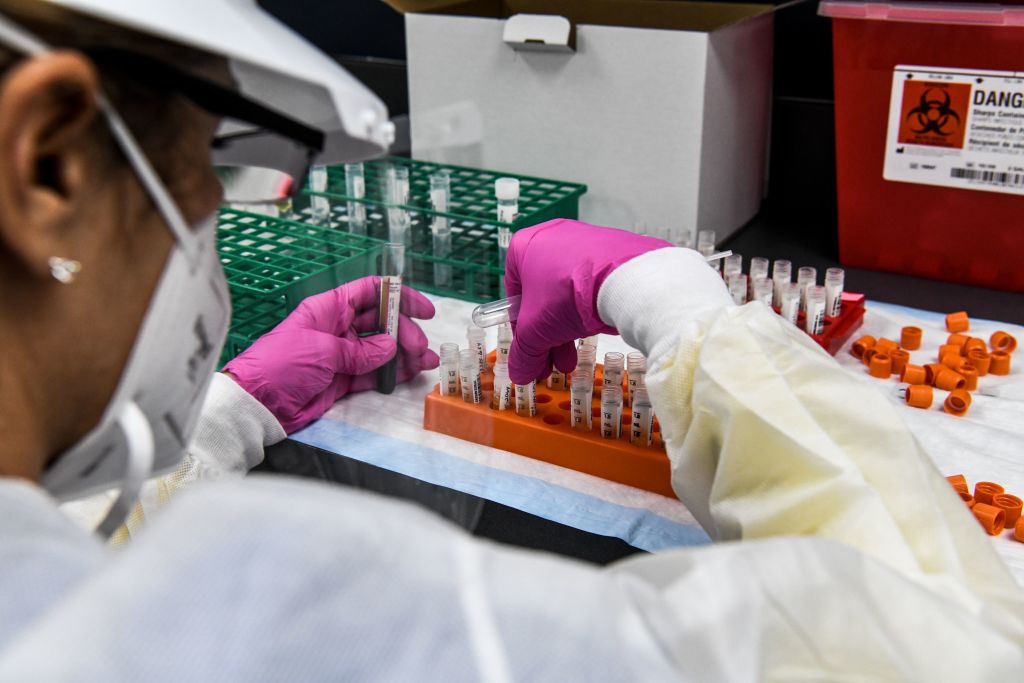Coronavirus vaccines may be less effective for Black and Asian recipients, MIT study suggests


A free daily email with the biggest news stories of the day – and the best features from TheWeek.com
You are now subscribed
Your newsletter sign-up was successful
Promising results from Moderna, Pfizer, and AstraZeneca's coronavirus vaccines have raised hopes that an end to the pandemic may be in sight. But distribution issues aside, a study from the Massachusetts Institute of Technology out last week is raising further concerns about those vaccines' effectiveness.
After initial human trials, Moderna reported its vaccine to be 94 percent effective in preventing coronavirus transmission, while Pfizer's was 95 percent effective and AstraZeneca's 70 percent. But these vaccines, along with many others still in development, share a potential weakness, MIT researchers report. Researchers used artificial intelligence and machine learning to examine a vaccine similar to these big developers', and found that while less than 0.5 percent of white trial participants didn't respond strongly to the vaccine, nearly 10 percent of Asian participants didn't. This could mean "people of Black or Asian ancestry could have a slightly increased risk of vaccine ineffectiveness," the study's senior author David Gifford said in an article accompanying the study.
A lack of diversity in the vaccine trial pools may have led developers to calibrate the vaccine to a specific version of human genes — white people's genes in particular. But MIT researchers did offer a potential solution: "adding a small number of additional COVID-19 peptides" — strings of amino acids that make up proteins, which in turn make up a coronavirus — "to a given dose of the vaccine," MIT's Computer Science and Artificial Intelligence lab writes.
The Week
Escape your echo chamber. Get the facts behind the news, plus analysis from multiple perspectives.

Sign up for The Week's Free Newsletters
From our morning news briefing to a weekly Good News Newsletter, get the best of The Week delivered directly to your inbox.
From our morning news briefing to a weekly Good News Newsletter, get the best of The Week delivered directly to your inbox.
"The study's results highlight longstanding trends in health care" and clinical trials, Health IT Analytics notes. Minority groups are often underrepresented in trials, making it less certain how effective vaccines and drugs will be for them and potentially leading to the formulation of vaccines that are tailored for white people. That's especially troubling amid the coronavirus pandemic, as Black and brown people have disproportionately been hospitalized with and died of the virus.
A free daily email with the biggest news stories of the day – and the best features from TheWeek.com
Kathryn is a graduate of Syracuse University, with degrees in magazine journalism and information technology, along with hours to earn another degree after working at SU's independent paper The Daily Orange. She's currently recovering from a horse addiction while living in New York City, and likes to share her extremely dry sense of humor on Twitter.
-
 What are the best investments for beginners?
What are the best investments for beginners?The Explainer Stocks and ETFs and bonds, oh my
-
 What to know before filing your own taxes for the first time
What to know before filing your own taxes for the first timethe explainer Tackle this financial milestone with confidence
-
 The biggest box office flops of the 21st century
The biggest box office flops of the 21st centuryin depth Unnecessary remakes and turgid, expensive CGI-fests highlight this list of these most notorious box-office losers
-
 Trump HHS slashes advised child vaccinations
Trump HHS slashes advised child vaccinationsSpeed Read In a widely condemned move, the CDC will now recommend that children get vaccinated against 11 communicable diseases, not 17
-
 FDA OKs generic abortion pill, riling the right
FDA OKs generic abortion pill, riling the rightSpeed Read The drug in question is a generic version of mifepristone, used to carry out two-thirds of US abortions
-
 RFK Jr. vaccine panel advises restricting MMRV shot
RFK Jr. vaccine panel advises restricting MMRV shotSpeed Read The committee voted to restrict access to a childhood vaccine against chickenpox
-
 Texas declares end to measles outbreak
Texas declares end to measles outbreakSpeed Read The vaccine-preventable disease is still spreading in neighboring states, Mexico and Canada
-
 RFK Jr. shuts down mRNA vaccine funding at agency
RFK Jr. shuts down mRNA vaccine funding at agencySpeed Read The decision canceled or modified 22 projects, primarily for work on vaccines and therapeutics for respiratory viruses
-
 Measles cases surge to 33-year high
Measles cases surge to 33-year highSpeed Read The infection was declared eliminated from the US in 2000 but has seen a resurgence amid vaccine hesitancy
-
 Kennedy's vaccine panel signals skepticism, change
Kennedy's vaccine panel signals skepticism, changeSpeed Read RFK Jr.'s new vaccine advisory board intends to make changes to the decades-old US immunization system
-
 Kennedy ousts entire CDC vaccine advisory panel
Kennedy ousts entire CDC vaccine advisory panelspeed read Health Secretary RFK Jr. is a longtime anti-vaccine activist who has criticized the panel of experts
